Filter by
SubjectRequired
LanguageRequired
The language used throughout the course, in both instruction and assessments.
Learning ProductRequired
LevelRequired
DurationRequired
SkillsRequired
SubtitlesRequired
EducatorRequired
Explore the Informatics Course Catalog
 Status: Free Trial
Status: Free TrialJohns Hopkins University
Skills you'll gain: Health Informatics, Clinical Informatics, Health Technology, Change Control, Health Systems, Health Policy, Informatics, Health Care, Medical Records, Health Care Administration, Healthcare Industry Knowledge, Health Information Management, Decision Support Systems, Solution Design, Health Information Management and Medical Records, IT Management, Electronic Medical Record System, Databases, Usability Testing, Data Science
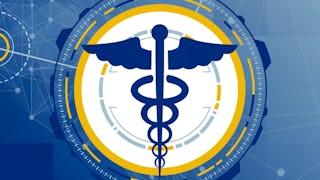 Status: Free Trial
Status: Free TrialJohns Hopkins University
Skills you'll gain: Health Informatics, Health Care, Medical Records, Health Information Management, Clinical Informatics, Electronic Medical Record System, Databases, Data Analysis, Data Quality, Interoperability, Big Data, Query Languages, Data Science
 Status: Free Trial
Status: Free TrialUniversity of Minnesota
Skills you'll gain: Team Building, Clinical Leadership, Nursing Administration, Nursing Management, Team Leadership, Health Informatics, Education and Training, Clinical Informatics, Leadership, Professional Development, Nurse Education, Nursing, Health Care Administration, Learning Management Systems, Informatics, Health Policy, Innovation, Health Care, Interpersonal Communications, Systems Thinking
 Status: Preview
Status: PreviewNortheastern University
Skills you'll gain: Health Informatics, Health Information Management, Health Systems, Health Technology, Clinical Informatics, Health Care, Health Care Administration, Data Sharing, Electronic Medical Record, Interoperability, Decision Support Systems, Data Management, Data Storage, Artificial Intelligence, Digital Transformation
 Status: Free Trial
Status: Free TrialUniversity of California San Diego
Skills you'll gain: Bioinformatics, Molecular Biology, Dimensionality Reduction, Unsupervised Learning, Applied Machine Learning, Data Analysis, Markov Model, Network Analysis, Biochemistry, Biotechnology, Life Sciences, Infectious Diseases, Statistical Analysis, Biology, Pharmacology, Algorithms, Machine Learning, Data Analysis Software, Data Mapping, Python Programming
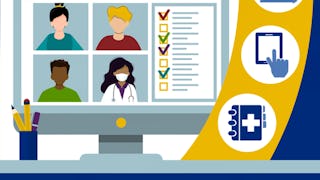 Status: Free Trial
Status: Free TrialJohns Hopkins University
Skills you'll gain: Medical Privacy, Health Insurance Portability And Accountability Act (HIPAA) Compliance, Electronic Medical Record, Telehealth, Patient Safety, Health Technology, Health Information Management, Clinical Informatics, Security Awareness, Personally Identifiable Information, Encryption, Help Desk Support, Medical Equipment, Desktop Support, End User Training and Support, Health Care, Clinical Documentation, Patient Communication, Technical Support, Customer Support
What brings you to Coursera today?
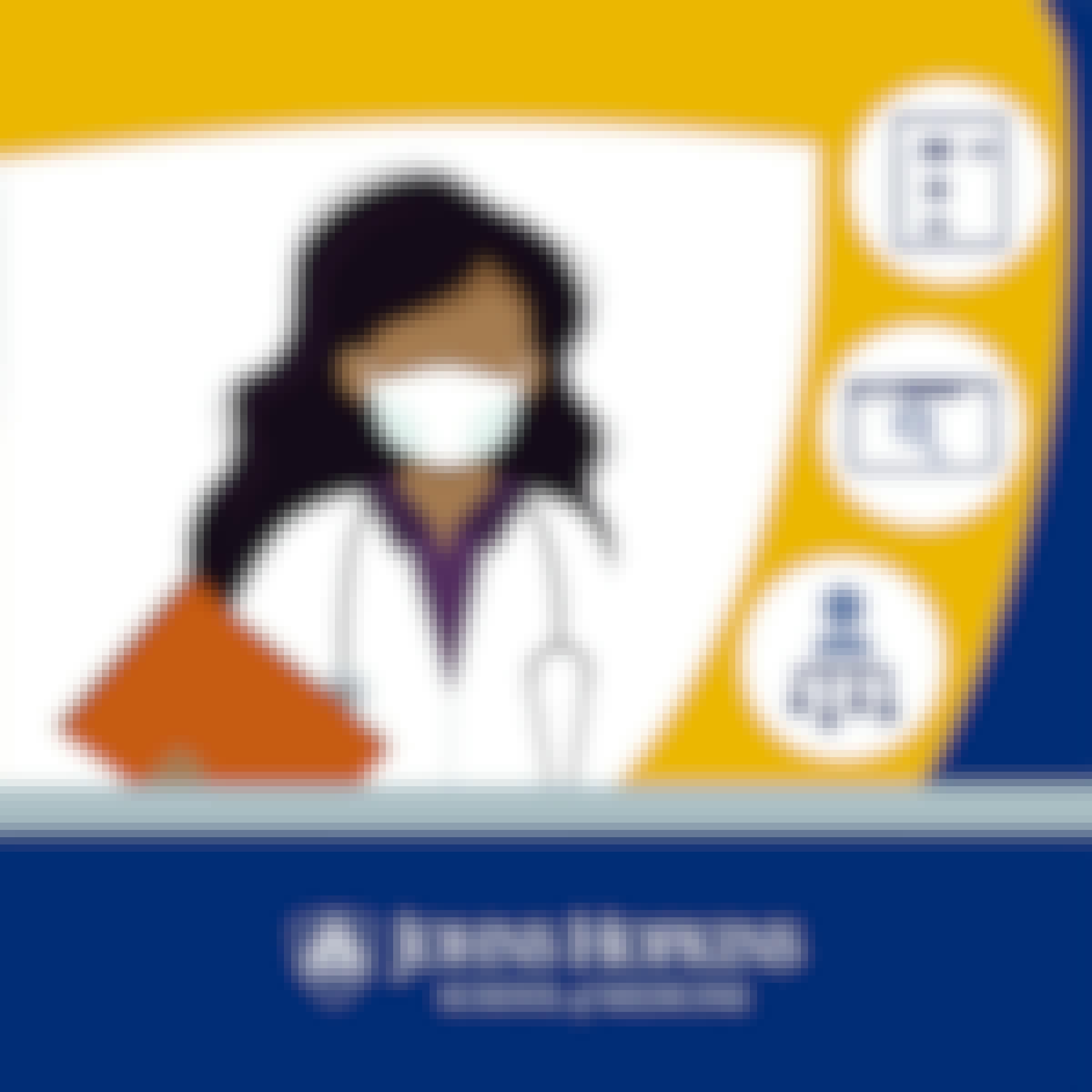 Status: Free Trial
Status: Free TrialJohns Hopkins University
Skills you'll gain: Electronic Medical Record, Clinical Informatics, Health Technology, Health Information Management, Clinical Documentation, Decision Support Systems, Practice Management Software, Technical Support, End User Training and Support, Patient Registration, Databases, Change Control, Interoperability, Authentications
 Status: Free Trial
Status: Free TrialUniversity of Minnesota
Skills you'll gain: Nursing Administration, Health Informatics, Education and Training, Clinical Informatics, Clinical Leadership, Nurse Education, Learning Management Systems
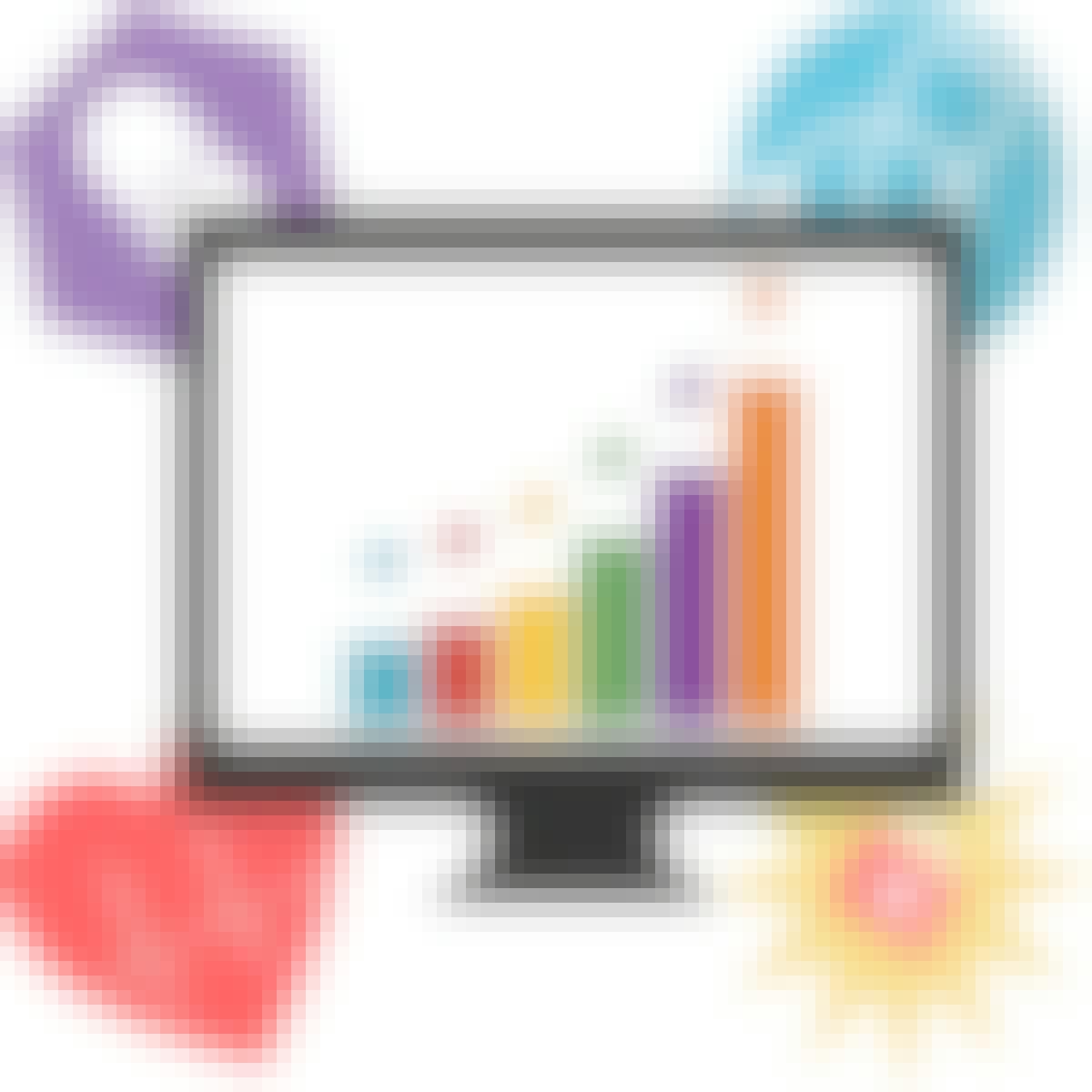 Status: Free Trial
Status: Free TrialUniversity of Colorado System
Skills you'll gain: Tidyverse (R Package), Clinical Data Management, Extract, Transform, Load, Data Modeling, Health Insurance Portability And Accountability Act (HIPAA) Compliance, Medical Privacy, Data Manipulation, Predictive Modeling, Database Design, Clinical Informatics, Google Cloud Platform, Intensive Care Unit, Data Ethics, Data Quality, Risk Modeling, Natural Language Processing, Bioinformatics, Informatics, Text Mining, R Programming
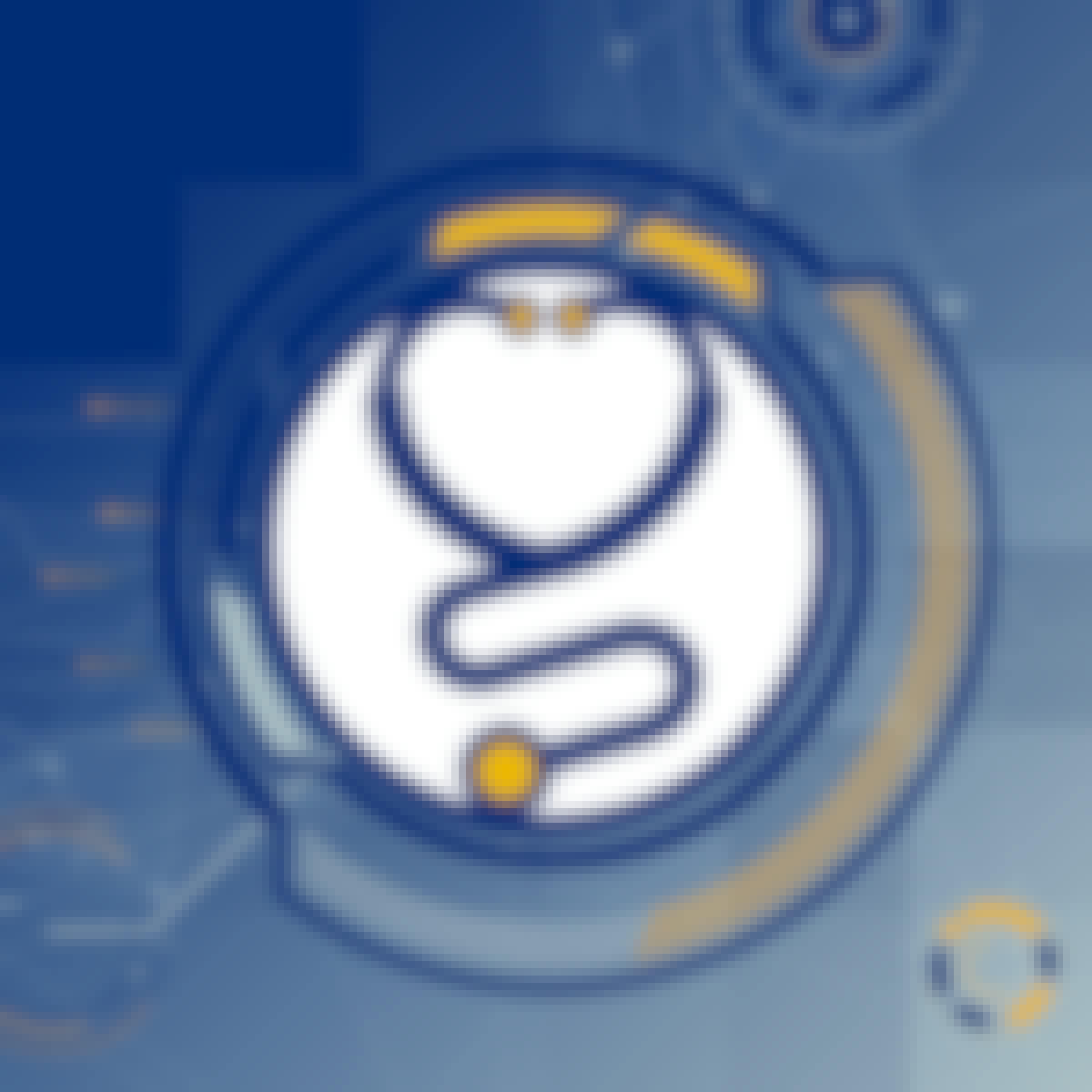 Status: Free Trial
Status: Free TrialJohns Hopkins University
Skills you'll gain: Health Informatics, Clinical Informatics, Change Control, Health Care Administration, IT Management, Strategic Leadership, Health Technology, Health Care, Decision Support Systems, Continuous Quality Improvement (CQI), Electronic Medical Record, System Implementation
 Status: Preview
Status: PreviewUniversity of Minnesota
Skills you'll gain: Health Informatics, Health Technology, Telehealth, Interoperability, Clinical Informatics, Informatics, Electronic Medical Record, Health Care, Health Information Management, Community Health, Healthcare Industry Knowledge, Data Sharing, Dental Informatics, Public Health, Data Ethics, Nursing, Data Visualization, Graph Theory
 Status: Preview
Status: PreviewUniversity of California San Diego
Skills you'll gain: Bioinformatics, Programming Principles, Python Programming, Computational Thinking, Biology, Data Structures
In summary, here are 10 of our most popular informatics courses
- Health Informatics: Johns Hopkins University
- The Data Science of Health Informatics: Johns Hopkins University
- Nursing Informatics Leadership: University of Minnesota
- Health Informatics for Healthcare Professionals: Northeastern University
- Bioinformatics: University of California San Diego
- Healthcare IT Support: Johns Hopkins University
- Health Information Technology Fundamentals: Johns Hopkins University
- Nursing Informatics Training and Education: University of Minnesota
- Clinical Data Science: University of Colorado System
- Leading Change in Health Informatics: Johns Hopkins University










